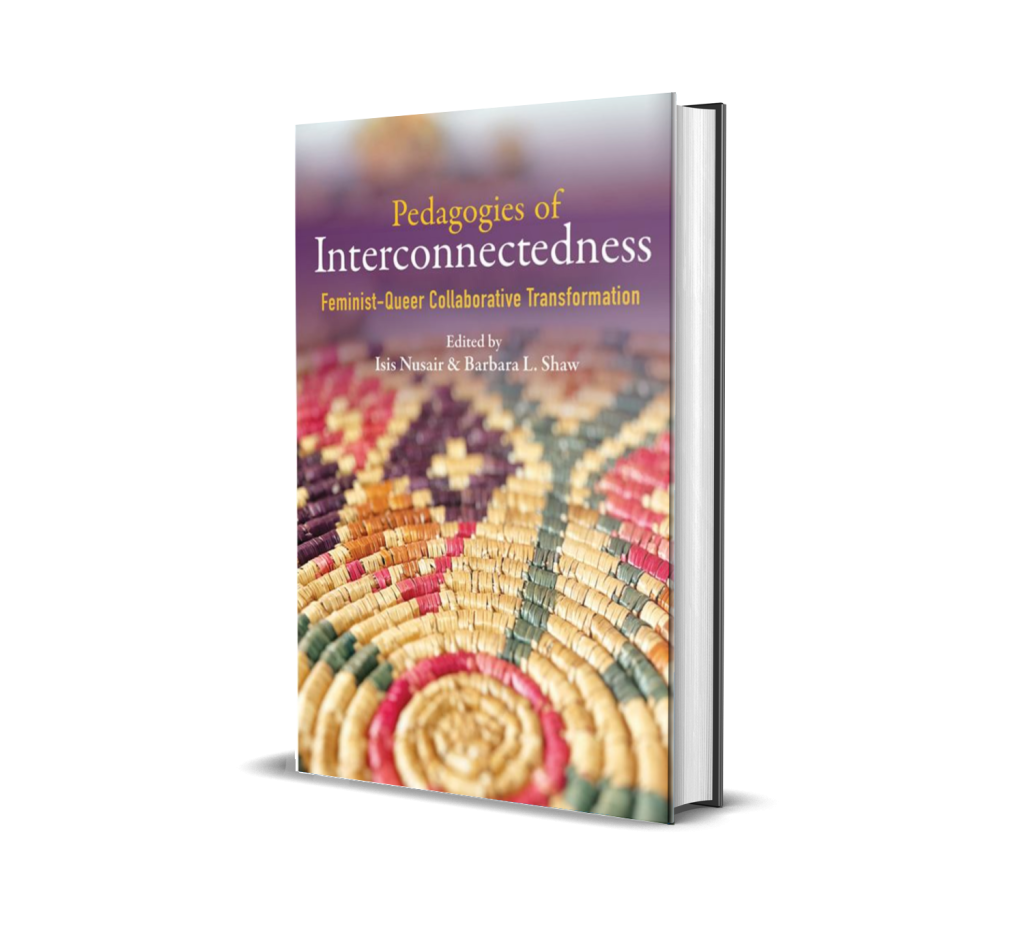Isis Nusair and Barbara L. Shaw, editors of Pedagogies of Interconnectedness: Feminist-Queer Collaborative Transformation, answers questions about their new book.
Q: Why did you decide to write this book?
We started by working together to direct three curricular and faculty development institutes. After years of doing the work, it grew into a collective of scholars committed to coalition-building and radical worldmaking. We wanted to provide examples of how feminist and queer collaborations in the classroom are a means for resistance, survival and social change.
Q: What is the most interesting discovery you made while researching and writing your book?
In addition to learning from our contributors, we discovered how feminist collaboration could be sustaining and healing. It contributes to building community and bringing into practice what we teach in our classes and write about theoretically.
Q: What myths do you hope your book will dispel or what do you hope your book will help readers unlearn?
We hope our book will make clear to students, scholars and activists that although we live in this neoliberal system that thinks it can control our lives and turn us into silenced and complicit citizens and mere consumers, that we are able to resist, create alternatives and enact change.
Women’s, gender, sexuality, and queer studies as a field offers ways of worldmaking that do not subscribe to neoliberal regimes of silence, complicity, consumption, competition, and rolling back ethical commitments. Instead, it aims to build liberatory and just societies. Women’s, gender & sexuality studies classrooms are spaces that teach collaboration, self-reflexivity, accountability, interconnectedness, and social justice that intervene in histories and contemporary practices of white nationalism, colonization, trans/misogyny, and individualism.
Q: Which part of the publishing process did you find the most interesting?
Doing the work of co-writing and co-editing was most interesting and enriching for us. We learned a lot about patience and perseverance and most of all how to respect the other’s space and point of view. The potential for learning and growth has been tremendous. It was also important for us to find meaningful ways to work closely with contributors on developing their chapters and seeing their ideas transform in our collaborative feedback process.
Q: What is your advice to scholars/authors who want to take on a similar project?
Our advice is to have a clear vision of what you want to achieve and keep at it no matter the circumstances. Feminist-queer collaboration hinges on deep communication and reflection with each other and contributors throughout the process. We put into praxis with each other what we bring into our classrooms and community work.
Q: What do you like to read/watch/or listen to for fun?
Isis: Syrian TV series, Palestinian literature, Arab women writers
Barbara: contemporary fiction, documentaries (especially on food and culture), Democracy Now!
Isis Nusair is a professor of women’s and gender studies and international studies at Denison University. She is a coeditor of Displaced at Home: Ethnicity and Gender among Palestinians in Israel and translator of Ever Since I Did Not Die.
Barbara L. Shaw is an associate professor and chair of the Women’s, Gender, and Sexuality Studies Department at Allegheny College. She is a coeditor of Feminist and Queer Theory: An Intersectional and Transnational Reader and Introduction to Women’s, Gender & Sexuality Studies: Interdisciplinary and Intersectional Approaches, and coauthor of the forthcoming book, Act Now!

